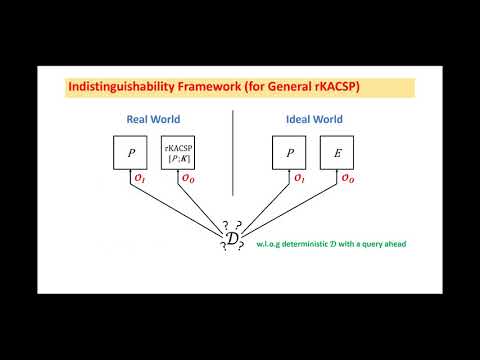CryptoDB
Tight Security Analysis of 3-Round Key-Alternating Cipher with A Single Permutation
| Authors: | |
|---|---|
| Download: | |
| Abstract: | The tight security bound of the KAC (Key-Alternating Cipher) construction whose round permutations are independent from each other has been well studied. Then a natural question is how the security bound will change when we use fewer permutations in a KAC construction. In CRYPTO 2014, Chen et al. proved that 2-round KAC with a single permutation (2KACSP) has the same security level as the classic one (i.e., 2-round KAC). But we still know little about the security bound of incompletely-independent KAC constructions with more than 2 rounds. In this paper,we will show that a similar result also holds for 3-round case. More concretely, we prove that 3-round KAC with a single permutation (3KACSP) is secure up to |
Video from ASIACRYPT 2020
BibTeX
@article{asiacrypt-2020-30676,
title={Tight Security Analysis of 3-Round Key-Alternating Cipher with A Single Permutation},
booktitle={Advances in Cryptology - ASIACRYPT 2020},
publisher={Springer},
doi={10.1007/978-3-030-64837-4_22},
author={Yusai Wu and Liqing Yu and Zhenfu Cao and Xiaolei Dong},
year=2020
}

